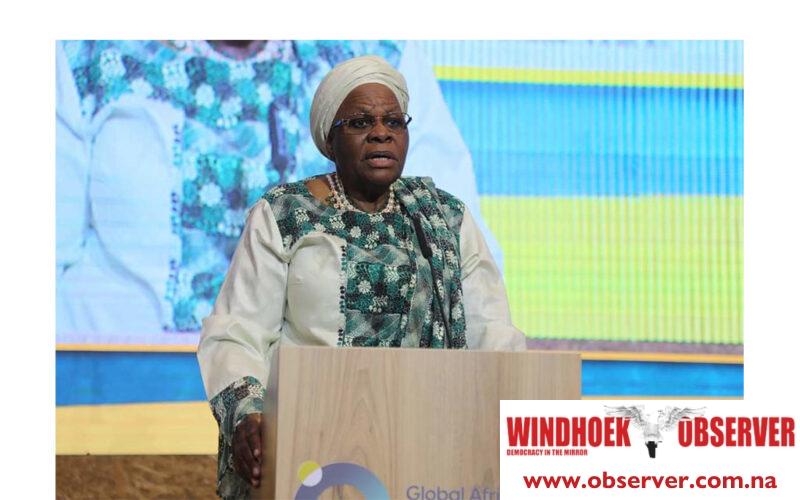Niël Terblanché
Namibia’s commitment to sustainable development and ecological preservation was the focal point of vice president Netumbo Nandi-Ndaitwah’s address at the Global African Hydrogen Summit currently in progress in Windhoek.
While addressing delegates on Wednesday, she stressed that environmental protection is both a natural responsibility and a constitutional obligation for Namibia, as the country strives to balance economic growth with ecological care.
“For the past 34 years, Namibia has worked strategically to industrialise its economy sustainably and competitively,” she said.
Nandi-Ndaitwah highlighted that the nation has placed environmental sustainability at the forefront of its developmental objectives.
“This approach is deeply embedded in Namibia’s Vision 2030 and reinforced through subsequent national development plans, including the Harambee Prosperity Plan,” she added.
The vice president pointed to the importance of hydrogen production, describing it as an innovative solution that could combat climate change while simultaneously opening doors to developmental pathways.
She stressed that hydrogen, particularly green hydrogen, has the potential to serve as a fundamental building block for industries such as transportation and manufacturing, offering Namibia the opportunity to position itself as a global leader in renewable energy.
“Namibia is investing its fair share of intellectual space towards the pursuit of hydrogen production,” she said.
Nandi-Ndaitwah explained that utilizing the country’s abundant renewable energy sources, such as wind and solar, could create significant opportunities to generate clean energy.
“Clean energy could also be used for green hydrogen production, helping the country diversify its economic base, create jobs, and even augment essential services like electricity and water supply,” she added.
The vice president also cautioned that industrial complexes, especially those on a large scale, must carefully consider their environmental footprint.
“The country’s rich biodiversity must be preserved, and she assured that Namibia would remain committed to striking a balance between economic development and ecological preservation,” she said.
Nandi-Ndaitwah was optimistic about the potential benefits of Namibia’s green industrialisation.
She pointed out that the recently launched Green Industrialisation Blueprint, which is a part of the nation’s strategy, holds the potential to attract investment, spur job creation, and drive long-term development.
“Namibia’s abundant natural resources, such as rare earth elements and lithium, coupled with its well-developed infrastructure, make the country well-positioned to lead Africa’s green energy transition,” she said.
According to Nandi-Ndaitwah, Namibia’s dedication to this cause aligns with continental goals, including the Africa Agenda 2063, which envisions “The Africa We Want” by promoting sustainable development.
The Vice President also highlighted the positive progress made by other African countries, including Egypt, Mauritania, and Kenya, in harnessing renewable energy and advancing green hydrogen projects.
Nandi-Ndaitwah invited stakeholders and investors to explore Namibia’s potential in the green energy sector, reiterating the government’s openness to partnerships that contribute to both national development and investor success.
The summit attracted more than 1 000 delegates from around the world, which is a clear indicator of the growing global interest in Africa’s role in the hydrogen economy.
The Vice President expressed hope for impactful and fruitful discussions at the summit, which will serve as a platform for shaping the future of sustainable energy in Namibia and beyond as the country continues to invest in green hydrogen and industrialisation.




